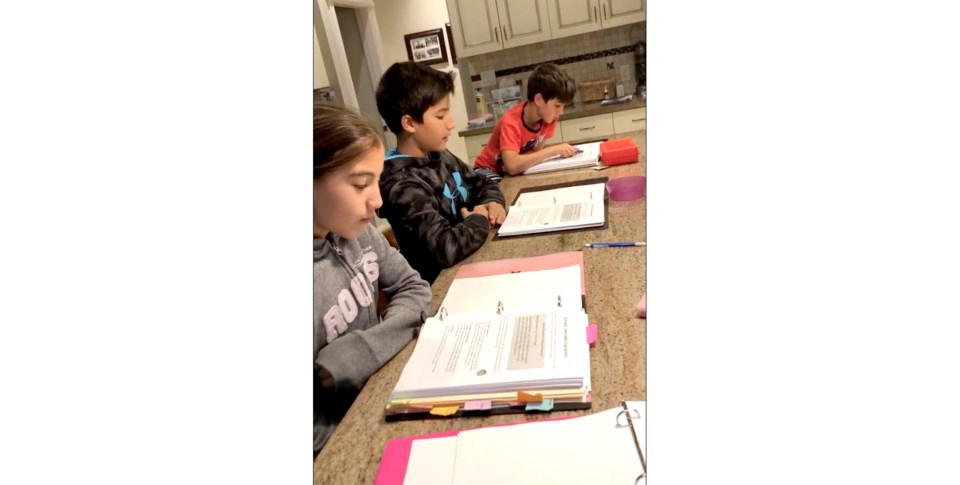Some Richmond parents are expressing their relief at the extension of remote learning until the end of the school year.
Sharline Gosal, who herself has a severe lung disease, said she is grateful her three children can continue to stay at home to learn and she praised the remote learning program in Richmond as “second to none.”
But she is concerned cases of COVID-19 are “under-reported” in Richmond because there seems to be a stigma around admitting to having the virus.
Her three children, who attend William Bridge elementary, have been taking part in the “transitional learning program” (TLP) set up by the school district in September.
Currently about 2,500 students in Richmond from kindergarten to Grade 9 are taking part in TLP – the majority are in elementary school.
There have been about 100 exposures in Richmond schools to COVID-19, but at the most recent school board meeting, a special meeting to discuss extending TLP, district superintendent Scott Robinson reiterated that there have been no “known transmission” in schools.
At the same meeting, some school trustees expressed their concern about the mental health of students who, by this fall, will have been out of school for 18 months.
Some students are also not being supported at home in their remote learning, Robinson explained in his report to the board of education; however, when asked how many are slipping through the cracks, Robinson said there is no data but, based on anecdotal information, it’s been a “relatively small number.”
Gosal said she believes if students in the remote learning program are having mental health issues, this should be dealt with by the family.
Trustees voted unanimously to continue the program, which allows these students to stay learning from home but at the same time be connected to their home schools.
The cost to extend the program in elementary and secondary schools will be $900,000.
Trustee Donna Sargent called the district’s schools “one of the safest places in our community.”
Trustee Ken Hamaguchi said if everyone was vaccinated, he might vote differently on the recommendation to continue remote learning, but as it is, he supported continuing the program.
Lyn Yang is also grateful for the extension of the program, but she would like to see safety measures stepped up in schools – at least to include a mask mandate in all areas of the school.
“In the absence of being able to have reduced class sizes, in the absence of being able to review or rehaul ventilation systems in every school, mandatory masking is the most effective, least expensive deterrent,” Yang said in an email to the Richmond News.
Some parents of children in the remote-learning program are feeling less confident about public health directives when they see different procedures in other jurisdictions, she added.
Anneke Wijtkamp, whose son has medical issues, also questioned the safety aspect in schools.
Nevertheless, she, too, is happy transitional learning will continue to the end of the school year.
“Unfortunately, it’s a constant battle – I have to be happy with small victories,” she said.
She would like to see more focus on safety, namely, a mask mandate, smaller classes and better ventilation.
Wijtkamp is especially concerned with the new COVID-19 variants found in B.C. including in schools in the Fraser Health region.
Wijtkamp challenged the “narrative” that schools are safe and that there aren’t any transmissions of COVID-19; she said she thinks it’s because students aren’t being tested.
Wijtkamp’s son is in the transitional program for medical reasons, and she said parents in her situation have a heightened awareness of the issues around COVID-19 “because we have real health concerns.”
She would also have liked to have heard more at the board meeting about how health and safety measures can be increased in schools.
The fact asymptomatic students aren’t being screened and there is no specific directive for staff or students in the mandatory daily health declaration to get tested if they have symptoms is another concern Wijtkamp has about COVID-19 in schools.
However, a “health assessment” by a medical practioner is recommended in the health declaration for anyone with symptoms, for example, a fever or worsening cough.


